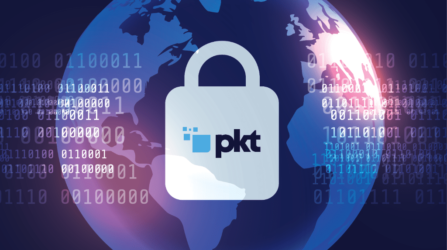Cardano is the home to ADA-Cardano, a digital coin similar to other cryptocurrencies. Cardano is unique in that it functions through proof of stake, a process that allows those who contribute to its blockchain to earn transaction fees. Cardano pioneered the initial peer-reviewed blockchain.
Cardano is more adaptable than other blockchains. It works to bring accessible, secure, and robust technology for widely-used existing financial applications.
Most major exchanges and cryptocurrency marketplaces provide options to buy or sell ADA-Cardano.
A cryptocurrency exchange is an online platform in which customers are allowed to trade cryptocurrencies for other crypto or fiat currencies. The peer-to-peer process within the exchange is responsible for trading support such as price determination and matchmaking.
A broker is a firm or an individual who sells their own ADA-Cardano to fill sellers’ orders. They are professional cryptocurrency dealers that offer online financial services to potential traders.
Several peer-to-peer directories also list ADA. On these platforms, two individuals can make a transaction without a broker or a matchmaking system.
Crypto markets are volatile, meaning the value of ADA-Cardano will fluctuate against other cryptocurrencies.
ADA-Cardano is available on numerous cryptocurrency trading platforms and marketplaces, making selling fairly accesible.
Below is a thorough step-by-step guide on how to sell ADA-Cardano.
Open an account by providing an email address, username, and strong password.
Provide a government issued ID to verify the account. The verification process can take a few minutes to several days.
To sell ADA on an exchange, first deposit ADAD into the newply created account. Depending on the exchange, ADA may trade for BTC or other cryptocurrency. However, in order to sell for a fiat currency such as USD, GBP, or EUR, exchange platforms may require additional personal information and proof-of-residence documents.
With ADA deposited, the liquidation process can begin. Using the market or limit order option, complete the platform’s selling steps and and complete the sale.
Cryptocurrencies are changing the financial landscape of monetization on a global scale. Trading cryptocurrencies is a new way of moving money directly between peers and valuing money through proof of work and proof of stake processes.
Unlike traditional markets that are open for trading during limited daytime hours, cryptocurrency markets trade any time of the day or night all over the world. So, there are several unique aspects to consider when selling in cryptocurrency markets, like with ADA-Cardano.
Almost all marketplaces verify each user’s identity and residency. The verification process can take anywhere from a few minutes to several days.
Wallets have evolved significantly since the first cryptocurrency wallet was introduced in 2009 for Bitcoin.
There are three types of wallets recommended for storing Cardano: a Daedalus wallet, a Yoroi wallet, or an Adalite wallet. All three of these wallets allow holders to stake Cardano and generate passive income.
They also are compatible with hard wallets for higher security. Though most marketplaces provide a wallet service, cold wallets are often preferable for security purposes.
Supply and demand determine ADA pricing just like any other cryptocurrency: the price rises and falls based on market conditions.
Certain exchanges offer on- and off-ramps to deposit or withdraw fiat currency. This ability varies by the exchange and country in which you are located. For example, in the United States, Coinbase, Gemini and Kraken have fiat rails for deposit and withdrawal in USD.
Swiss Bank’s InCore has fiat on-ramps for European clients using Kraken. Additionally, Incore and Kraken together have recently started supporting fiat on-ramps for the British Pound, the Swiss Franc, and the Canadian Dollar.
Alternatively, most exchanges allow wire transfers which can take a longer time to process. Some exchanges take credit or debit cards. Others work directly with certain banks via automated clearing houses, which help coordinate electronic payments.
To ensure the security of stored ADA, choose a trustworthy marketplace with a good reputation. Look for a marketplace that offers security features like cold storage and two-factor authentication.
Do not store large amounts of assets in any marketplace, since cyber attacks can happen anywhere.
Crypto markets are known for their volatility. If possible, sell during a bull market, or upward market trend, to ensure the best return on investment.
Despite the volatility, certain considerations and discipline can lead sellers to make good returns.
New cryptocurrencies enter the market every day, but prominent cryptos continue to develop as a financial asset. Below are some of the most popular types of cryptocurrency other than ADA-Cardano.
Bitcoin was created as an open-source blockchain software in 2009. It is a digital currency backed by digital speculation rather than a government.
The Bitcoin network is set up in such a way that the currency may be able to counter inflation.
Litecoin is also an open-source software like Bitcoin. Litecoin was designed to be used for more cost effective transactions than Bitcoin and is more efficient for everyday use.
The cryptocurrency for the Ethereum Network is also referred to as Ether or ETH. The currency’s issuance is capped at approximately 18 million annually. The Ethereum Network is primarily used to operate smart contracts without a middleman.
Zcash has strong privacy functions, giving it an edge over other cryptocurrencies. This network uses zero-knowledge proofs to validate transactions, providing anonymity for users.
The Stellar network’s cryptocurrency is called Lumen. Lumen can be traded with different currencies domestically and internationally.
Another emerging cryptocurrency in the digital world is PKT. The PKT Network is known for its emphasis on speed, strength, and security. PKT is building a VPN market where anyone can participate and the minimum price is FREE! Additionally, it aims to replace legacy ISPs with a decentralized bandwidth marketplace. PKT has plans to roll out several meaningful new functions over time. Visit PKT.Cash for more information about this groundbreaking new project.
PKT is considered the first bandwidth-hard blockchain protocol. Launched in August 2019, PKT is created to amaturize the maintenance and deployment of internet infrastructure and grow mesh networking connectivity. Imagine being able to connect to the Internet without paying a traditional ISP?
PKT is a Bitcoin fork and uses a 60 second block time that makes it 10x faster than Bitcoin. PKT also has a Network Steward to fund R&D for the network. The Network Steward is a wallet address elected by POS vote that receives 20% of every block reward. The Network Steward then grants the funds it receives to developers for community proposals that will help grow and maintain the PKT Network. This mechanism ensures there is always funding to support the PKT Network’s roadmap and development.
PKT Cash is the native currency that is paid to miners who connect to the PKT Network. PKT replaces the Bitcoin proof of work with PacketCrypt, an algorithm designed to foster mutual participation among miners.
This economic incentive is the basis for a faster internet infrastructure operated by the people using the network. The resulting network will enable people to get internet access via mesh networking with their neighbors.
There will be a total of 6 billion PKT Cash mined over 63 years. Every 100 days a decimation occurs where the 60 second block rewards reduces by 10 percent.
This creates a smooth decay in mining rewards, in contrast to Bitcoin’s abrupt halving that occurs every 4 years.
PKT Cash has many utility use cases, including paying for VPN connection speed via AnodeVPN, as well as paying utility bills and subscriptions, such as Netflix, through PKT Pal’s bill pay services.
This means people can mine PKT Cash with their Internet, and then pay their Internet bill with the PKT Cash. PKT Cash’s microtransaction capabilities will also be used for buying, selling and trading bandwidth leases in a forthcoming bandwidth trading market.
PKT Cash is mined through mining pools. As of April 2021, there are four major mining pools.
There are two distinct stages to mining PKT, announcement mining and block mining. These two stages go hand in hand towards decentralizing the transmission of data across the globe.
Announcements are the small bits of data being encrypted and uploaded by the miners from any computer device. In this stage, anyone can prove they have done the work and these announcements are collected by block miners.
Block mining is a complex process that requires high-grade hardware. The block miner collects the announcements and verifies whether or not the announcement miner did not cheat. The block miner creates a PacketCrypt proof and stores that proof in the blockchain. The block miners then receive the block rewards and share the payment with the announcement miners.
Traders generally buy and sell digital assets in online cryptocurrency exchanges, online broker platforms, and peer-to-peer directories. Since PKT Cash is not currently listed on an exchange, it can only be traded through a peer-to-peer trading group on Telegram called the PKT Cash Trading Group. You can check this over-the-counter trading channel here.
Sources:
https://cryptoradar.co/sell-cardano
https://www.kraken.com/en-gb/learn/sell-cardano-ada
https://www.etoro.com/crypto/what-is-cardano/
https://www.telegraph.co.uk/technology/digital-money/buying-vs-trading-cryptocurrency/
Go back to Blog →
Updates
An inside look at the blockchain that pays based on internet bandwidth.

Updates
PKT Lightning Daemon (PLD) Caleb James Delisle is the lead dev for PKT and shared some big updates for the upcoming PKT Wallet technology, including the PKT Lightning Daemon (PLD)…